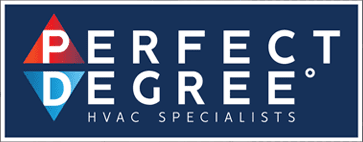When purchasing new HVAC equipment for your home or business, understanding the coverage provided by your warranty is crucial for your peace of mind and financial protection. HVAC warranties are designed to ensure that should anything go amiss with your new system, you won’t be left facing unexpected and potentially costly repairs. Let’s delve into what you can typically expect a standard HVAC warranty to cover, the importance of maintaining that warranty, and what tends to fall outside warranty provisions.

Understanding Different Types of HVAC Warranties
Manufacturer’s Warranty: Most HVAC systems come with a manufacturer’s warranty, which covers defects and malfunctions in the equipment itself. This warranty usually guarantees replacement parts for components that fail due to manufacturing defects. The duration of coverage can vary, with many manufacturers offering a standard 5-year warranty that extends to 10 years upon product registration.
Labor Warranty: Installation quality plays a pivotal role in the longevity and efficiency of your HVAC system. Some installers offer a labor warranty that covers the cost of labor for repairs within a specified period after installation. These warranties vary in length and may require a service agreement.
Extended Warranties: For additional peace of mind, some manufacturers and installers offer extended warranties that prolong the coverage period for both parts and labor beyond the standard terms. These can be beneficial depending on your specific needs and the reliability of the model you choose.
What HVAC Warranties Typically Do Not Cover
It’s as important to know what your warranty does not cover as it is to know what it does. Here are common exclusions from HVAC warranties:
- Neglect and Lack of Maintenance: Regular maintenance is critical. Failing to service your unit can void your warranty, as many manufacturers require proof of annual professional maintenance.
- Improper Installation: Warranties generally cover parts and labor but not costs associated with correcting an improper installation if performed by a contractor not certified by the manufacturer.
- Environmental Damage and Unforeseen Events: Damage from natural disasters, pests, or accidents is not covered under most HVAC warranties. These situations are typically handled by homeowners’ insurance policies.
- Components not Covered: Some warranties only cover specific parts of the system or exclude certain components altogether, like disposable air filters or damages caused by corrosive environments.
How to Ensure Your HVAC Warranty Remains Valid
Protecting your HVAC warranty involves more than simply installing the system. Here are key steps to consider:
- Register Your Product: Ensure you register your HVAC unit with the manufacturer to activate the full warranty. Failure to do so might result in shorter warranty coverage.
- Professional Maintenance: Have your system serviced annually by a certified professional. Keep documentation of these services as proof for warranty claims.
- Use Authorized Parts and Service Providers: Using off-brand parts or unauthorized service providers can void your warranty. Always opt for certified professionals and genuine replacement parts.
Contact Perfect Degree HVAC for Trusted Services
At Perfect Degree HVAC, we understand the importance of keeping your HVAC system running efficiently and ensuring your warranty protections stay intact. Whether you’re looking to install a new system or require maintenance to uphold your warranty, our experienced and certified technicians are here to help.
To learn more about our services or to schedule an appointment, please call us at (610) 529-7372 or fill out our online form. Our team is dedicated to providing the quality service you deserve, ensuring your comfort throughout the year. Trust us to handle all your HVAC needs in Drexel Hill, PA with professionalism and expertise.


